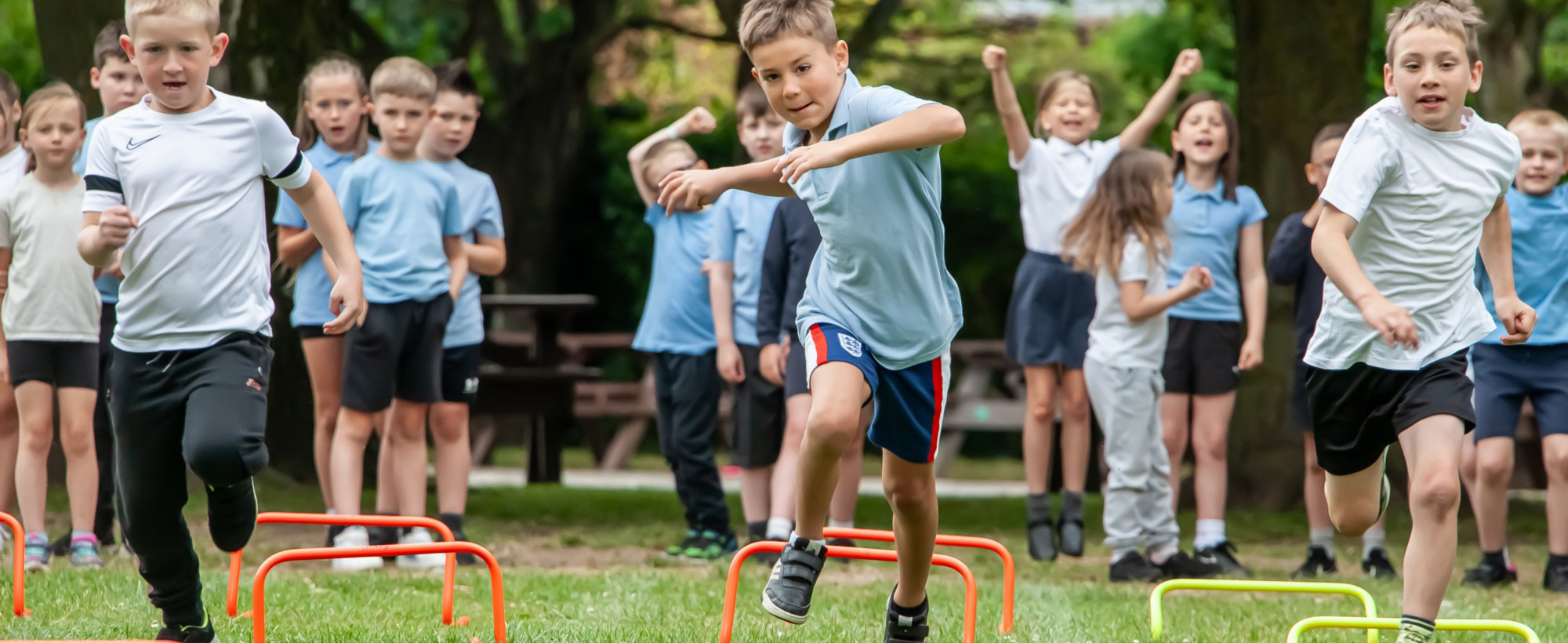
PE and Sports Premium
All children and young people should live healthy active lives. The UK Chief Medical Officers recommend that all children and young people should take part in moderate to vigorous intensity physical activity for at least 60 minutes every day. Children with special educational needs and disabilities should take part in 20 minutes of daily activity.
The Childhood Obesity Plan says that at least 30 minutes of daily activity should take place in schools.
Schools have a key role to play in achieving this aim. This is particularly true of primary schools where the foundations of positive and enjoyable participation in regular physical activity are embedded. All children should have equal access to high-quality PE provision and opportunities to experience and participate in a wide range of sports and physical activities. Academic achievement can improve in school because of the benefits children can gain.
Our Sports Premium Strategy Statement
The Report is saved in PDF format. If you are unable to open it then you can download a free PDF reader from Adobe.
2024-25 - Year 6 Swimming Outcomes
Swim competently, confidently and proficiently over a distance of at least 25 metres - 87%
Use a range of strokes effectively [for example, front crawl, backstroke and breaststroke] - 73%
Perform safe self-rescue in different water-based situations - 53%
Schools should use the PE and sport premium funding to help achieve these aims. It must not be used for core-type school activities. They should use it to make additional and sustainable improvements to the PE, sport and physical activity they provide, such as:
- funding high-quality PE and sport for at least 2 hours a week, complemented by a wide range of extracurricular sport and competitive opportunities
- providing or improving equal access to sport for boys and girls
Schools should prioritise PE and sport premium spending to improve in the following 5 key areas:
- increasing all staff’s confidence, knowledge and skills in teaching PE and sport
- increasing engagement of all pupils in regular physical activity and sport
- raising the profile of PE and sport across the school, to support whole school improvement
- offer a broader and more equal experience of a range of sports and physical activities to all pupils
- increase participation in competitive sport
How funding is calculated and the amounts payable for 2023 to 2024
Schools receive PE and sport premium funding based on the number of pupils they have in years 1 to 6. In cases where schools may not have set year groups (for example, in some special schools), pupils aged 5 to 10 attract the funding.
In most cases, we determine funding by using data from the January 2023 school census. For a new school, or a school teaching eligible pupils for the first time in the academic year 2023 to 2024, funding is based on data from the autumn 2023 school census.
For the year 2023 to 2024, the amounts payable will be:
- schools with 16 or fewer eligible pupils will receive £1,000 per pupil
- schools with 17 or more eligible pupils will receive £16,000 and an additional payment of £10 per pupil


